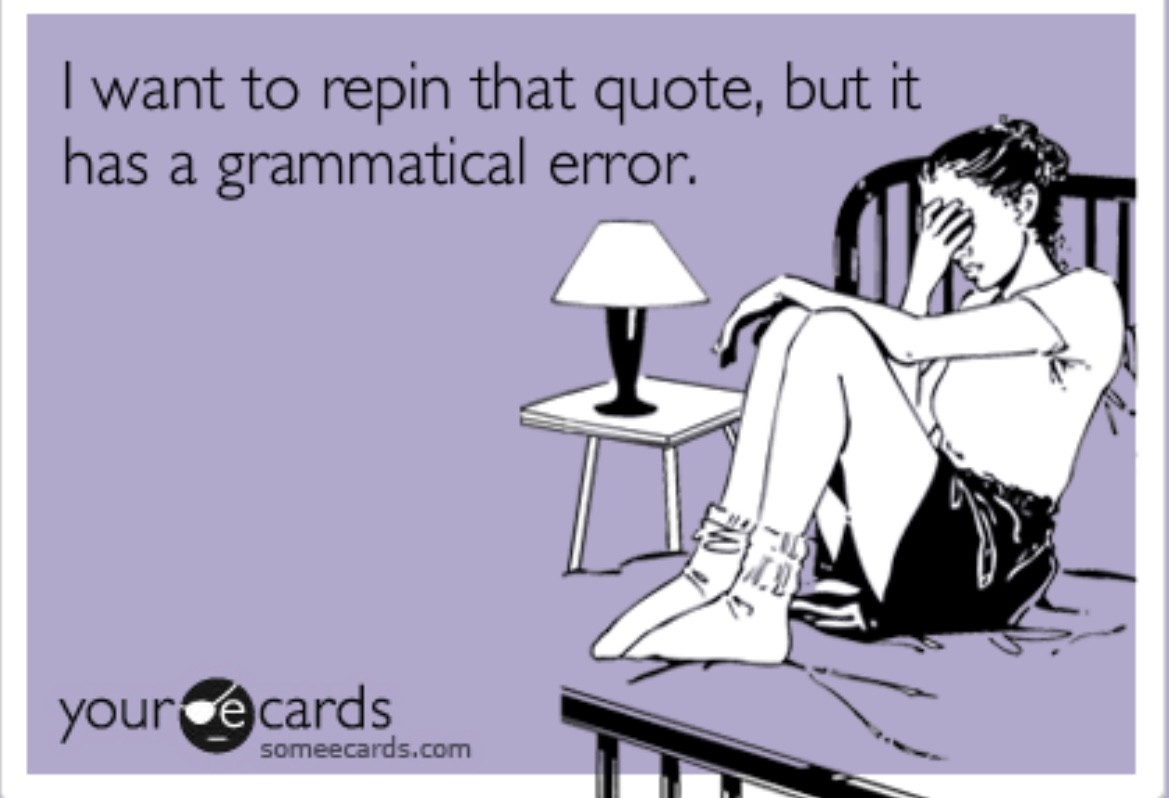
“Roses are red, violets are blue, incorrect grammar will never be cute.” — Anonymous
On any given day, if you watch the news, read posts on Facebook, or sometimes have conversations with relatives and co-workers, someone will inevitably say, “I seen” when they should have said, “I saw.” And even though I hear it just about every single day, and should now be accustomed to this assault on grammar, I still find myself cringing inwardly. That’s a lie. I don’t cringe inwardly; I wince and make a face outwardly. Sometimes I even roll my eyes or sigh heavily. The bad part is, the grammar infractor may actually have something important to tell me, but after “I seen,” you may still be talking, unfortunately I’m no longer hearing.
When did “I seen” because so prevalent? And apparently so acceptable? And why isn’t everyone else isn’t cringing like I am? I’m not kidding, when I hear, “I seen” the words go right down my spine, my ears hurt a little, and I’m no longer concentrating on what the person with the offensive grammar is telling me. Instead, my thoughts wander. Why did they say that? How can they possibly think “I seen” is ever acceptable? What school did they attend that taught “I seen” instead of “I saw”, or apparently let it slide when used incorrectly? Who started this? And why haven’t they been stopped?
Some people mistakenly think I’m correcting the grammatically challenged when I mutter, “I saw” after hearing someone say, “I seen”, or “He doesn’t” after mistakenly saying, “He don’t.” But I swear to you, I’m not correcting them (although it wouldn’t be the worst thing in the world if they learned to say “I saw” after being prompted) — instead I’m trying to appease the Grammar Nazi in my head that is relentlessly screaming “I SAW! I SAW! I SAW!” and won’t stop screaming until it hears the words spoken correctly, and out loud.
Please understand that I didn’t choose to be a grammar snob. It’s not pleasant constantly wincing at other people’s grammatical faux pas, scrolling with disgust past Facebook posts with “loose” instead of “lose”, or biting my tongue to keep from shrieking, “WE WERE!” when an unsuspecting relative says, “We wasn’t.” Sure this natural compulsion for grammar helped me in English and Composition classes, and makes writing fairly easy for me, but sometimes I consider it more of an affliction than a blessing. Wouldn’t it be nice to watch TV and not flinch at every grammar blunder? To simply be oblivious to language infractions?
I’m not so sure. First of all, it’s simply not possible for me to not notice and/or ignore bad grammar because it is truly a part of my DNA. My parents were conscientious grammarians (my motherly frequently responded, “Between the A and the T” when we asked, “Where is it at?”), and overall I’m glad for their due diligence. I don’t remember ever studying for an English test, and I actually enjoyed diagramming sentences (I know — nerd alert). Second, I can’t apologize for doing/saying what’s actually correct, nor do I think there’s anything wrong with upholding standards that are slowly but surely losing (not loosing) their importance.
I don’t care so much if someone says, “lay” when it really should have been “lie” or “theirselves” when obviously it’s “themselves”, but the blatant blunders are simply impossible to ignore. Sorry everyone, but I am silently (and occasionally audibly) correcting your grammar. And it’s not because I want to — it’s because I have to. And if you’re “I seen”-ing, I’m not listening.
Thanks for reading this post. Please share with others if you like what I wrote.

